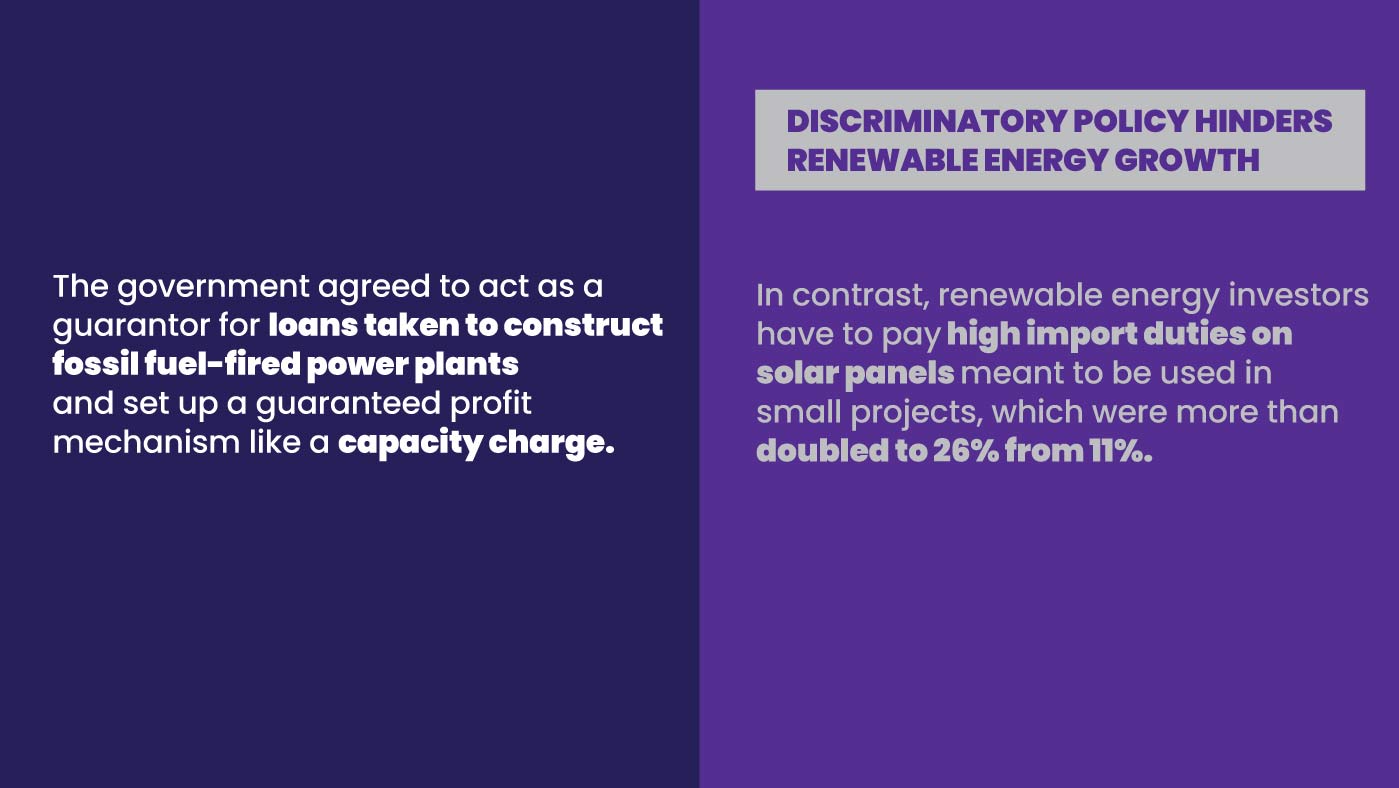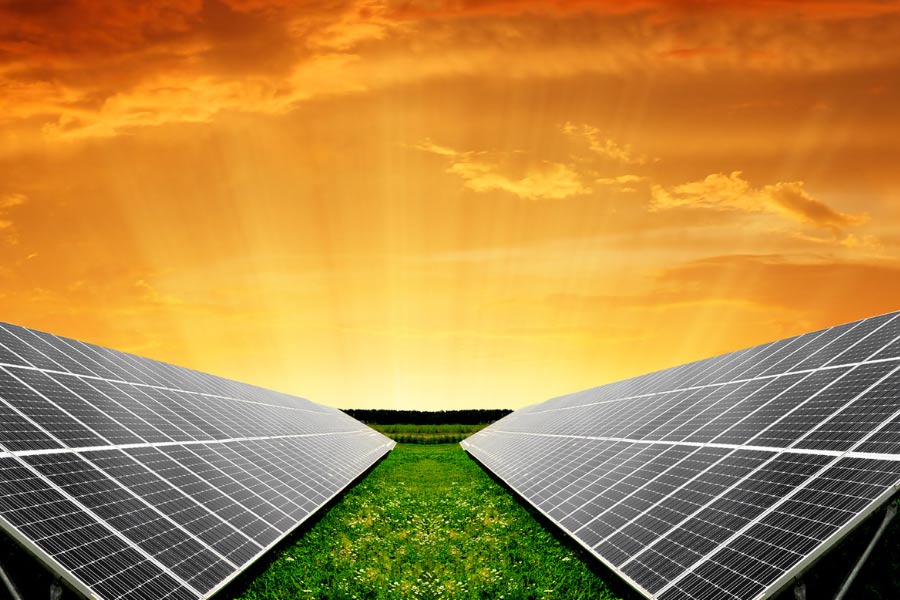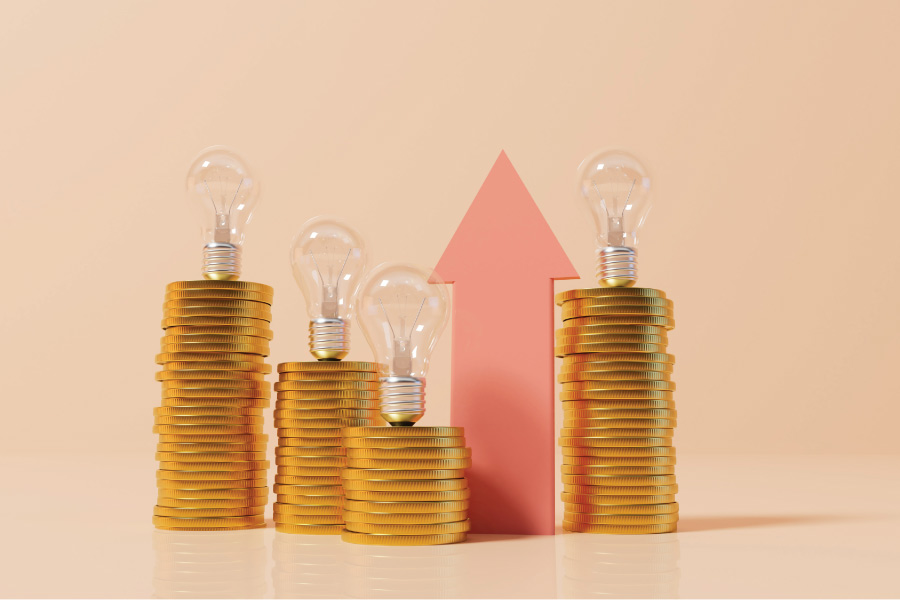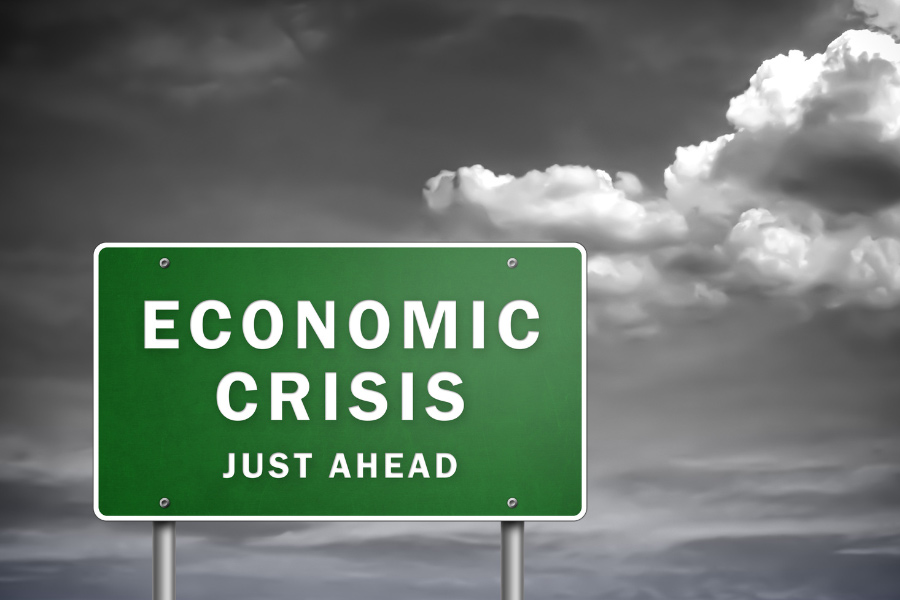Sustaibale energy expert of the country pointed out that the government’s discriminatory policy towards renewable energy was evident in high import duties on solar panels meant to be used in small projects, which were more than doubled to 26 per cent from 11 per cent in the financial year 2021-22.
This report was first published in The New Age on 22th October, 2022.
Emran Hossain
The main obstacles to the expansion of renewable capacity, aside from a lack of land, are a shortage of money caused mostly by discriminatory policies of the government, which only encourages fossil fuel-based power capacity, energy specialists and investors said.
According to experts, large solar power projects, the most promising renewable energy source, may not be feasible in Bangladesh due to a lack of available land, but smaller solar projects, like rooftop solar and solar irrigation, have real potential. But the potential remained largely untapped due to financial barriers, they pointed out.
They said that the government’s discriminatory policy towards renewable energy was evident in high import duties on solar panels meant to be used in small projects, which were more than doubled to 26 per cent from 11 per cent in the financial year 2021-22.
The investors said that if used in small projects, almost all the important solar project machinery requires paying exorbitant import duties, effectively killing off the nation’s potential for solar energy. They pointed out that independent power producers, or IPP, projects, which frequently use fossil fuels, import machinery duty-free
The incumbent government also injected billions in fossil fuel generation for 100 per cent electrification, which eventually rendered millions of solar home systems incompatible with highly subsidized fossil fuel, said the renewable energy specialists.
‘Incentives like capacity charge made fossil fuel generation investment so profitable that Bangladesh ended up having about 50 per cent power overcapacity,’ Khondaker Golam Moazzem, research director, Centre for Policy Dialogue, told New Age.
‘The existing power sector structure aggressively favours fossil fuel expansion and is highly discriminatory to renewable energy,’ he said.
The discriminatory policy resulted in a 373 per cent increase in fossil fuel capacity in the 14 years since the incumbent government assumed power.
Though the renewable capacity was also enhanced by 134 per cent, the renewable capacity – 907 MW, including 418 MW of off-grid capacity – accounted for less than four per cent of the overall installed capacity of 25,730 MW.
Different studies showed that the lack of available land did not deter fossil fuel investors from occupying more land than they needed. To increase fossil fuel-based power generation capacity, the government mobilized land, often compensating displaced owners far less than market value.

The government even agreed to act as a guarantor for loans taken to construct fossil fuel-fired power plants and set up a guaranteed profit mechanism like a capacity charge, which fossil fuel investors are legally entitled to receive regardless of the amount of power generated at their plants.
In contrast, renewable energy investors have only managed acres for the construction of 321 MW solar power project so far, and they are required to build their own grid line for evacuating power to the national electricity grid.
With regards to small solar projects, which experts say could easily generate 9000 MW from rooftop solar and could replace 1.3 million diesel-run irrigation pumps.
Bangladesh has so far replaced only 2000 diesel-operated pumps and installed a rooftop capacity of 102 MW, according to the Sustainable and Renewable Energy Development Authority data.
The import of an inverter, a key element in solar projects, requires a 37 per cent duty if it is to be used in small projects, while a 58.6 per cent duty is payable for importing the aluminium frame used in solar projects and a 15.26 per cent import duty is slapped on the import of walkway, a solar project accessory, said renewable investors.
‘Exorbitant import duties make overwhelmingly import-dependent solar project investments highly risky,’ said Md. Mahfuz Ur Rahman Bhuiyan, director, UCC, a private firm specializing in solar power.
The most significant renewable energy achievement, in which over 6 million solar home systems were installed since the 1990s, was lost with the successful implementation of the government’s 100 per cent electrification programme, renewable investors said.
‘The solar home systems are mostly out of use as they are expensive compared to subsidised fossil fuel electricity,’ said Dipal Barua, president, Bangladesh Solar and Renewable Energy Association, a business body.
Renewable investors also have few places to turn to for capital. Banks are reluctant to extend loans to renewable projects as they are long-term investments compared with fossil fuels, generating a slow return. The non-banking sector also finds renewable investment not very profitable.
The major renewable capital source is the government-owned Infrastructure Development Company Limited, established in 1997. But IDCOL lends at high interest, up to 9 per cent, higher than the rate at which it accessed part of its fund from donors.
‘The government should subsidise the renewable energy sector like fossil fuel,’ said Shahriar Ahmed Chowdhury, director, Centre for Energy Research, United International University, calling for a soft long-term loan for renewable energy projects.
IDCOL appeared rather more interested in generating profit, for it made a net profit of Tk 524.4 crore since 2017, as shown in the financial highlights on its website.
IDCOL’s operating performance was rather stark compared to that of the Bangladesh Power Development Board, the power sector regulator, with its losses accumulating to Tk 76,115 crore in the 10 years until 2020-21. The PDB paid Tk 72,567 crore as a capacity charge to fossil fuel-based power companies over the same period.
New Age in vain awaited a reply to a set of seven questions emailed on September 21 to the IDCOL after its officers refused to face the reporter in person citing official restrictions.
‘Confined in red tape, IDCOL is barely operating,’ said Mahfuz Ur Rahman Bhuiyan, pointing out that dozens of documents, from birth certificates to bank guarantees, are needed to get a renewable energy project passed by IDCOL.
The Sustainable and Renewable Energy Development Authority, inadequately mandated, funded and equipped with manpower, was described as almost ineffective by renewable energy experts and investors.
‘The government must strategically and financially incentivise small renewable projects,’ said economist Ahsan H Mansur, emphasising the setting up of several institutions for financially facilitating renewable energy projects.





